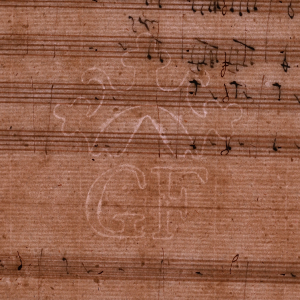- Function
-
- Composer
- Biography
Angelo Frondoni (1809-1891) was an Italian composer, writer and music critic active in Portugal. Supported by the Conde de Farrobo, Joaquim Pedro Quintela (1801-1869), he came to Lisbon in 1838 to act as maestro of the S. Carlos theatre. With two farces, O Beijo (1844) and O Caçador (1845), he established his reputation and contributed to the creation of a popular form of national theatre. His career reached a high point between 1868 and 1873 when he was active prolifically as a composer for the newly inaugurated Trinidade theatre, though after 1875 it was overshadowed by failed projects to establish amateur choral societies in Porto and Lisbon, in which he had invested much time and effort. Frondoni’s writings included contributions to the newspaper A revolução de Septembro, a poem on the death of Abraham Lincoln, and pamphlets on the origins of music and Wagner’s Lohengrin.
The Fundo do Conde de Redondo in P-Ln contains autograph scores of four sacred works and the autograph score and parts for a chorus (‘Preghiera no Eremita’) that was performed at the D. Fernando theatre in 1856 (F.C.R. 81//3). An altered inscription on the score of Responsorios de sexta-feira Santa (F.C.R. 81//4) implies it was owned by Diogo de Sales da Cunha de Pina Manique (1809-1864) in 1855 but that it was later acquired by José Luis Gonzaga de Sousa Coutinho, the 15th Conde de Redondo (1797-1863). F.C.R. 81//1 and F.C.R. 81//5 contain inscriptions that may refer to D. Eugenia de Caslelo-Branco, a daughter of D. Maria Francisca Luisa de Sousa Coutinho (1815-97) (Castilho 1935, p. 221) and D. Maria José de Melo Abreu Soares Vasconcelos Barbosa e Palha (1857-1882).
Júlio de Castilho, Lisboa Antiga: Segunda Parte: Bairros Orientais, 2nd edition, vol. 3 (Lisboa: S. Industriais da Câmara Municipal de Lisboa, 1935), p. 221.
Angelo Frondoni, il Verdi portoghese atti del convegno – Pieveottoville, 24 marzo 2013, ed. Gioele Gusberti (n.p.: Diastema, 2017).
João Luís Meireles Santos Leitão da Silva, ‘O diário A Revolução de Setembro (1840-1857): música, poder e construção social de realidade em Portugal nos meados do século XIX’, master’s dissertation (Universidade Nova de Lisboa, 2006).
Stevenson, ‘Frondoni, Angelo’, Oxford Music Online: Grove Music Online (2001) [https://doi.org/10.1093/gmo/9781561592630.article.10309].
Ernesto Vieira, Diccionario biographico de musicos portuguezes: historia e bibliographia da musica em Portugal, 2 vols. (Lisbon: Typographia Mattos Moreira & Pinheiro, 1900), i, pp. 433-438.
- Source(s)
- Handwriting identifiers
-
- C-Clef
-
- Type 1
- F-Clef
-
- Type 2
- G-Clef
-
- Type 2
- Images
-
-











































